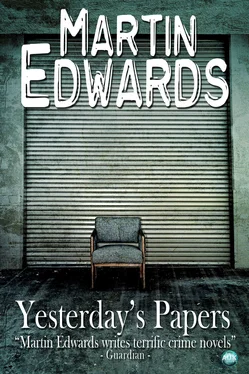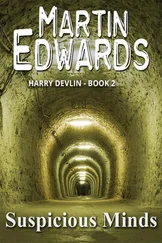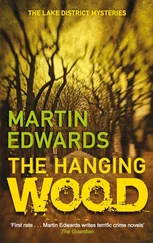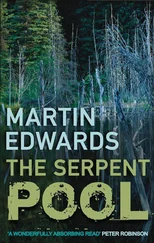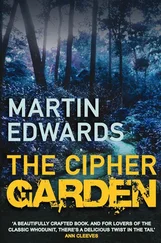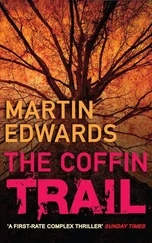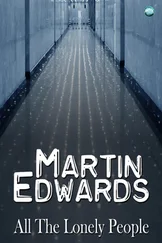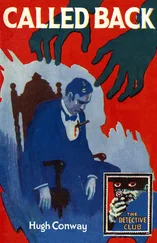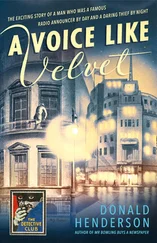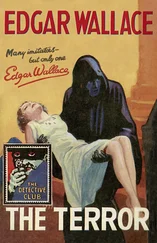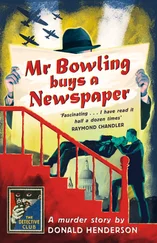Martin Edwards - Yesterday's papers
Здесь есть возможность читать онлайн «Martin Edwards - Yesterday's papers» весь текст электронной книги совершенно бесплатно (целиком полную версию без сокращений). В некоторых случаях можно слушать аудио, скачать через торрент в формате fb2 и присутствует краткое содержание. Жанр: Криминальный детектив, на английском языке. Описание произведения, (предисловие) а так же отзывы посетителей доступны на портале библиотеки ЛибКат.
- Название:Yesterday's papers
- Автор:
- Жанр:
- Год:неизвестен
- ISBN:нет данных
- Рейтинг книги:3 / 5. Голосов: 1
-
Избранное:Добавить в избранное
- Отзывы:
-
Ваша оценка:
- 60
- 1
- 2
- 3
- 4
- 5
Yesterday's papers: краткое содержание, описание и аннотация
Предлагаем к чтению аннотацию, описание, краткое содержание или предисловие (зависит от того, что написал сам автор книги «Yesterday's papers»). Если вы не нашли необходимую информацию о книге — напишите в комментариях, мы постараемся отыскать её.
Yesterday's papers — читать онлайн бесплатно полную книгу (весь текст) целиком
Ниже представлен текст книги, разбитый по страницам. Система сохранения места последней прочитанной страницы, позволяет с удобством читать онлайн бесплатно книгу «Yesterday's papers», без необходимости каждый раз заново искать на чём Вы остановились. Поставьте закладку, и сможете в любой момент перейти на страницу, на которой закончили чтение.
Интервал:
Закладка:
‘If only they could talk, eh, Harry? Plenty of stories there. Shattered reputations, unsuccessful scams. Broken marriages, disputed wills.’
Shaking his head in wonder, Jock marched into a second large room. Long metal racks were piled high with books and buff folders and there was a collection of the bizarre oddments accumulated over the years by a dozen firms of solicitors. Rusty filing cabinets leaned like Pisa’s tower under the weight of big black deed boxes bearing such inscriptions as BRIGHTWELL DECEASED and ESTATE OF THE LATE COLONEL TOLMIE. Cardboard crates were scattered over the floor, making the men’s progress an obstacle race. Harry peered inside one of them and caught a glimpse of the detritus of Liverpool’s glory days: old mariners’ charts and pictures of ships in frames with cracked and dirty glass. Another held a trophy case entombing a morose stuffed trout: an unwanted legacy, perhaps. There were chairs with missing legs, a settee with its springs sticking out and even a lumpy mattress in a bilious floral design.
Jock pointed towards the mattress. ‘I’ve heard it said that during the Blitz the senior partner of Maher and Malcolm entertained the wives of wealthy clients in his private office on that.’
‘I’d feel more comfortable on the floor outside, taking my chance with the rodent population.’
As they came to the back of the cellar, Jock indicated a crater in the distempered wall, with exposed sandstone visible inside the cavity. ‘If a rat dug that out, I wouldn’t fancy bumping into the bugger.’
‘If you’d met some of my clients, you’d take it in your stride. So, where do you keep Cyril’s stuff? I realise he bequeathed a load of garbage, but we must be under the Mersey by now.’
‘Not far off. I reckon that when we get a thirty-foot tide, I can hear the water washing up not a stone’s throw away. As for the material from Tweats and Company, I’m still logging it on the system. It’d be easier to catalogue Dale Street litter.’
‘You have my sympathy. Total quality management meant less to Cyril than Sanskrit.’
‘Hey! I think we’ve struck gold!’
Jock bent down to a shelf just above the floor and picked out three files of papers held together by a rubber band. He flourished his find in front of Harry’s nose.
‘“SMITH, EDWIN, MURDER.” All right?’
‘Jock, you’re a genius. Thanks.’
‘So what is all this about?’ asked the little man as they picked their way back through the detritus. ‘A murder case thirty years ago — where do you come in?’
‘I don’t know yet that I do come in. But I’ve been asked to look into the old papers, see what I make of them.’
Jock raised his eyebrows. ‘I’ve heard you have a name as a part-time private detective. Tramping the mean streets of Merseyside.’
‘So someone’s told you I’m a nosey sod? Well, I don’t suppose I’ll be sueing for slander. I can’t deny I have an inquisitive streak. And yesterday I met a man who thinks there may have been a miscarriage of justice in the case of Edwin Smith.’
‘Get away.’ Jock flourished a dog-eared Ross Macdonald paperback which he had pulled from the back pocket of his jeans. ‘Fact is, I like a good murder mystery myself. You’ll have to let me know what you discover. Who knows? I might get a chance to play Watson to your Holmes.’
‘Don’t hold your breath. The man I spoke to may be way off beam.’
‘But if he isn’t?’
‘Let’s see what yesterday’s papers tell me. Whether Smith was guilty as charged or just unlucky in his choice of defence lawyer.’
Puzzled, Jock stroked his jaw. ‘But Cyril Tweats was a good brief, by all accounts. He may not have known about keeping proper records, but he was a champion of the ordinary man, not any kind of fool.’
Harry gave a sceptical grunt and nodded back towards the endless shelves of old documents.
‘You know what they say — doctors bury their mistakes and architects build them. Solicitors simply file them.’
Chapter Six
When Harry emerged into the open air, the Pierhead was as cold and grey as before. Yet in comparison to the Land of the Dead, it suddenly seemed as bright and warm as Malibu.
On his way to Derby Square, he wondered again whether there could be any doubt that Edwin Smith had strangled Carole Jeffries. A thin layer of dust lay over the papers in the folder tucked under his arm. Cyril Tweats hadn’t agonised over the case, hadn’t kept going back to it, striving to find a way to prove Smith’s innocence. Once Smith’s mother had paid his bill, he’d closed his file and consigned it to the vaults. Harry could picture him discussing the trial at his club, shaking his head and saying that it was a sorry business, but although he had done his best, the evidence had damned his client. Yet, Harry reminded himself, the conviction of Kevin Walter had once seemed equally sound.
On Kevin’s twenty-fifth birthday, a jeweller’s home in South West Lancashire had been burgled. He had been watching television when a masked man brandishing a gun burst in and bound and gagged him before stealing rings, watches and silver worth a small fortune. The jeweller was a mason, a member of the same lodge as several senior officers in the local force, and the investigating team was under pressure from the start to find the guilty man. Kevin Walter, a robber with a violent streak whose curriculum vitae read like a teach-yourself guide to the British penal system, headed the queue of the usual suspects.
Under questioning, Kevin claimed that on the evening of the break-in, he and Jeannie had quarrelled furiously because he had accused her of seeing another man. He had hit her and then stormed out to celebrate his birthday with a one-man pub crawl. But he could not provide an alibi and after eighteen hours in the cells, his nerve snapped. He confessed and said his accomplice was a man he’d met in a pub whom he knew only as Terry. It had all been Terry’s idea, of course, and Terry had conned him good and proper: he’d never seen any of the proceeds of the raid. Long before the trial came around, Kevin changed his story and was vehement in protesting his innocence. He’d been bullied into making a false confession and Terry was a figment of his own mind. But the jury didn’t believe him and the judge sent him down for ten years.
He would still have been doing time had it not been for a stroke of luck. One fine morning another jeweller was offered several of the stolen rings and watches. He became suspicious and called in the police; for once their enquiry went like a dream. They traced the fence who had supplied the hot property and he identified his own supplier, a young villain from Toxteth called Gurr who had no known links with Kevin Walter. When Gurr was charged he exercised his right to silence. Meanwhile Kevin remained inside.
After they had spent so long apart, Jeannie remembered her husband’s virtues more clearly than his vices and began to campaign actively for his release. She sacked his original solicitor and instructed Harry instead, whilst urging the media to help put right yet another miscarriage of justice. Harry discovered from transcripts of the interviews prior to Kevin’s confession that he had been denied proper access to legal advice and that the interrogation had been oppressive. Revealing a flair for publicity which any kiss-and-tell bimbo would envy, Jeannie Walter soon began to attract support from journalists and pressure groups. Clive Doxey, no less, was one of those who had penned a column espousing her cause, Harry remembered. Gurr went to jail, still without opening his mouth, and Kevin remained inside. But a bandwagon had started to roll.
Читать дальшеИнтервал:
Закладка:
Похожие книги на «Yesterday's papers»
Представляем Вашему вниманию похожие книги на «Yesterday's papers» списком для выбора. Мы отобрали схожую по названию и смыслу литературу в надежде предоставить читателям больше вариантов отыскать новые, интересные, ещё непрочитанные произведения.
Обсуждение, отзывы о книге «Yesterday's papers» и просто собственные мнения читателей. Оставьте ваши комментарии, напишите, что Вы думаете о произведении, его смысле или главных героях. Укажите что конкретно понравилось, а что нет, и почему Вы так считаете.
